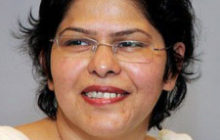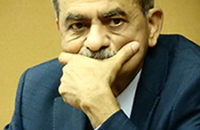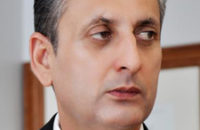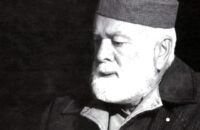by Kamran Siddiqui
There are about fifty Muslim majority countries in the world and about 25 countries that have more than 10% Muslim population. Islam is the second largest religion with about 1.6 billion followers. However, other than the population scale, Muslim majority countries and Muslim population in general score relatively low on various global scales for scientific advancement, education and literacy, and human development. While this is a serious concern and logically, Muslims should ponder on their lower state of development, the irony is that Muslims in general are least worried about their performance on those indices.
This is primarily due to the very strong sense of belonging to the religion that is indoctrinated from the early childhood and continues throughout the life. The essence of this indoctrination is that Islam is the only true religion; whatever that is conveyed in the name of religion is the absolute truth; and the only path to success is the full adherence to the Islamic sharia without questioning.
While followers of other religions are also indoctrinated that their religion is the only truth, a unique aspect in case of Muslims is the blind and strong faith in the truthfulness of the entire religious framework and the firm belief that Islamic sharia has perfectly codified every aspect of life and hence, the only way to be successful and glorious in this world is by sticking to the prescribed religious framework.
As a result, any decline, misery or humiliation that Muslims face, they generally attribute it to their failure in adherence to the sharia, individually or collectively. It is beyond the perception of Muslims in general, to even think that the sharia laws may partially be responsible for their decline and poor performance in socio-economic indicators.
Any reform initiative in the Muslim world is a severe uphill battle. The fierce opposition to any attempt of religious reform is equally shared by illiterate and educated classes. Although educated Muslims have embraced science, modern education and social evolution but not at the cost of religious teachings.
While they implement open-minded approach, rationality and logic in their affairs at work or non-religious matters, they generally close their minds and reject rationality and logic when it comes to a religious issue. The primary reason is the intense indoctrination since childhood that all religious teachings are absolute truth and perfect, and questioning their validity or truthfulness is a grave sin.
The jurisprudence of Muslim sharia, which is commonly presented and believed by Muslims as the fundamental structure of Islam is based almost entirely on the literature documented 200-300 years after the revelation of Quran (the divine scripture). While Quran is always portrayed as the source of sharia, its role in jurisprudence is almost not existent.
In fact, in a case of direction contradiction of any sharia law with Quranic verses, Muslim scholars have declared the Quranic verse to be either abrogated or non-functional. The documents that form the basis for sharia law i.e. Hadiths have credibility issues.
Hadiths which are claimed to be the sayings and actions of Prophet Muhammad were written 200-250 years after Prophet’s death, without any documentary evidence that dated back to Prophet’s time to confirm or validate their truthfulness. They are all based on oral narrations that claim to have a chain of narrators that goes back to Prophet’s time.
This approach has a credibility challenge because there is no credible way to verify the accuracy of the text orally transmitted by narrators in the chain that have passed away three generations or more ago before its written compilation. Similar issue is with the early Muslim history i.e. Prophet’s era and early days of Islam.
The earliest written manuscript of Muslim history that survived was written by Ibne Hesham and dated almost 250 years after Prophet’s time. While Ibne Hesham claimed that he has revived the manuscript of Ibne Ishaq written 100 years earlier, he acknowledged that he modified the text as necessary for correctness. In other words, he accepted the alteration of the earlier history text, which itself was written about 150 years after Prophet’s time.
Now here is the current state of Muslim affairs. Their religious framework and its jurisprudence, which they believe to be true and perfect have no fully credible ties with Prophet himself as well as with their divine scripture. The dilemma faced by any Muslim reformist movement is to first convince Muslims that their religious framework and its jurisprudence are neither absolute truth nor perfect.
They need to realize that their decline may partially be attributed to some problems with this framework and jurisprudence, which are neither divine nor fully credible. Rather than blindly sticking to them, they should open up their minds and critically re-evaluate and restructure them for adaptability with the advancing societies of modern era. They should embrace the socio-economic norms of the advancing and evolving world while staying within the moral bounds set by the Quran, their divine book.
Kamran Siddiqui is a Professor at the University of Western Ontario in Canada.

























